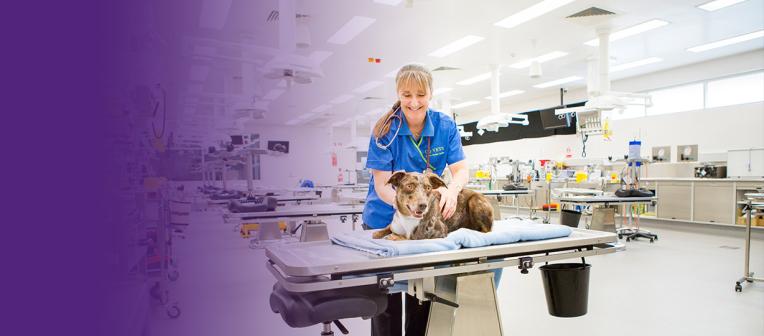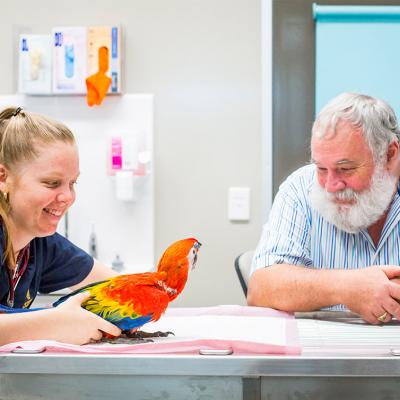Which is the best university for veterinary science in Australia? With so many options to choose from, it may feel like an overwhelming question.
To help you decide, we’ve compiled a handy list of the top 8 things you should look for in a vet school – and why we think studying veterinary science at The University of Queensland will set you up for a rewarding and meaningful career.
Here are the most important aspects to consider when comparing the best veterinary universities in Australia.
1. How does the veterinary science program rank internationally?
When you study veterinary science at UQ, you’ll get a world-class education at a school currently ranked in the top 35 globally for veterinary science programs. This gives you the confidence that comes with graduating from one of the best veterinary universities in the world.
As a UQ graduate in this field, you’ll be a highly attractive candidate to prospective employers and hold an advantage when competing for your dream job as a veterinarian. The practical experience you’ll get in UQ’s facilities mean you’ll graduate a self-reliant, independent and highly capable veterinarian with the initiative and problem-solving abilities for success in the industry.
2. Will you be training in first-rate veterinary science facilities?
Set on 1,000 hectares of rural land, UQ’s Gatton campus is home to the Small Animal Hospital and Equine Specialist Hospital, where you’ll complete 130 hours of clinical practical work. You’ll also have access to an outstanding range of purpose-built facilities for your:
- laboratory-based research
- animal-based research
- clinical research
- field research.
Based at UQ’s Gatton campus, you won’t have to travel long distances to get valuable hands-on experience, as you would with many city-based universities. UQ’s Gatton campus sets you up to be a confident and highly skilled expert in the industry by giving you invaluable practical experience and access to its many specialised facilities.
Get to know UQ’s Gatton campus
Take a virtual tour of UQ’s Equine Specialist Hospital and Small Animal Hospital.
Learn about the first-rate facilities available to veterinary science researchers and students at UQ’s Gatton Campus, such as the diagnostic and research laboratories, the Clinical Studies Centre, the farm animal facilities, and more.
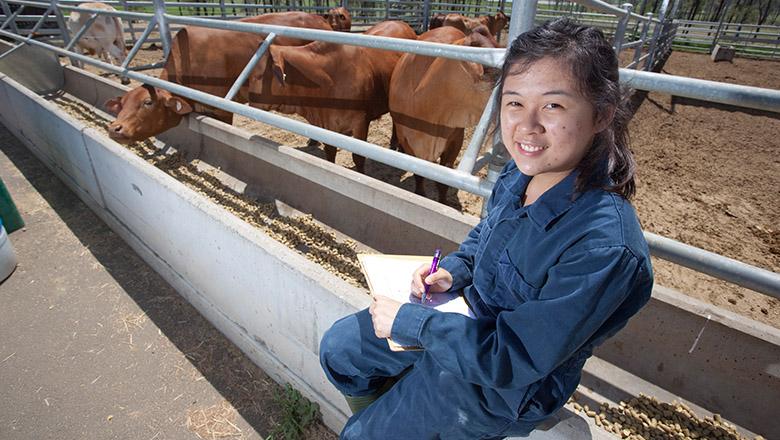
3. Is the program internationally accredited, allowing you to work as a veterinarian globally?
As a veterinarian, your expertise can be applied anywhere around the globe. This is why it’s so important to make sure you get your qualification from a veterinary school with an international accreditation – and this is something all the best veterinary universities should offer.
UQ’s School of Veterinary Science has full accreditation with the Australasian Veterinary Boards Council, the Royal College of Veterinary Surgeons, and the American Veterinary Medical Association. So, as a UQ graduate, you’ll be able to practise in a range of countries around the world.
4. Are your teachers cutting-edge researchers and leaders in their industry?
Veterinary science research efforts at UQ are currently ranked well above world standard by the Australian Government’s Australian Research Council, which reflects the dedication and passion of UQ’s veterinary science researchers.
Through your veterinary studies at UQ, you’ll have access to and learn from experts who are dedicated to continual learning and improvement in the field of veterinary science. UQ scientists work at the cutting-edge of research and are passionate about finding ways to improve health and wellbeing outcomes for animals, as well as developing the next generation of veterinarians.
Protecting horses from the deadly Hendra virus
In an example of the industry-shaping work being done by UQ veterinary scientists, a team of researchers made headlines in 2021 with the ground-breaking development of a rapid testing kit for the deadly Hendra virus, which claims the lives of 79% of the unvaccinated horses it infects. The breakthrough diagnostic point-of-care kit can detect the pathogen in under an hour and addressed a decades-long gap in veterinary science research and animal care.
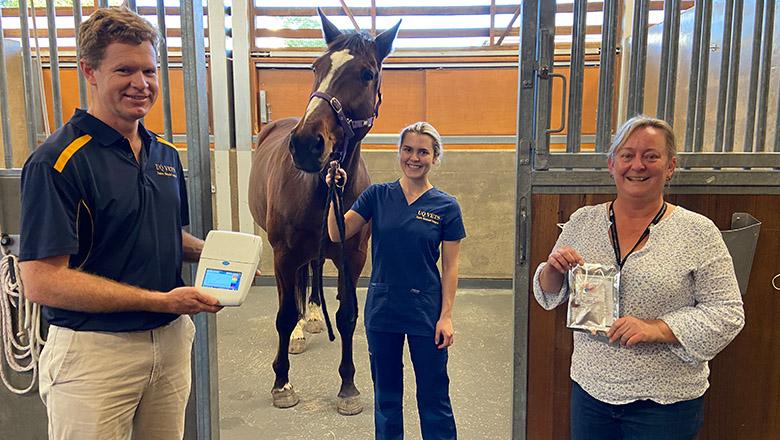
UQ’s Professor Ben Ahern (left) with a LAMP Genie III diagnostic machine, veterinary nurse Gabriella Doxey with horse Cartouche (centre), and veterinary researcher Lyndal Hulse (right) holding the Hendra diagnostic sampling kit
5. Will you graduate prepared for a varied career with diverse specialisations?
If you attend one of the best veterinary universities in Australia, you should expect to get prepared for an exciting, successful career tailored to your interests and passions.
By studying veterinary science at UQ, you’ll have the chance to learn about a broad range of specialisations in the field. You’ll gain foundational skills through training in the anatomy, physiology, biochemistry, nutrition and behaviour of healthy domestic and wild animals. With over 600 hours of practical training, you’ll get to know the many varied aspects of the veterinary science field and the diversity of employment opportunities you can explore with your qualification.
Some of the career opportunities available to graduates include:
- veterinarian
- biosecurity field officer
- microbiologist
- government advisers in health, trade and production fields
- agribusiness professional
- researcher.
6. Will you be learning from teachers who care about your education experience and development?
The best university to study veterinary science will obviously have highly skilled and knowledgeable experts on hand. However, it’s equally important that you’re learning from people who are teachers at heart – teachers who genuinely care about the industry and the development of the next generation of veterinarians.
UQ’s teachers have won more awards than any other uni in Australia, demonstrating their commitment to educating and supporting their students.
Celebrating multiculturalism at UQ Gatton
With a high percentage of international students enrolled in our Bachelor of Veterinary Science (Honours) program, it’s important to ensure they can celebrate and remain connected to their culture.
The annual Diversity Dinner is highly anticipated amongst UQ Gatton's international student community. It's a chance to come together and celebrate cultural diversity by sharing favourite dishes.

International students enjoying UQ Gatton’s International Food Festival, part of the campus’s Harmony Day celebrations
7. Does the university have a vibrant and supportive student lifestyle?
UQ provides you with a range of opportunities to lead a happy and active lifestyle outside of your veterinary studies. You’ll have access to onsite gyms, sporting clubs, hobby and interest groups, and other extracurricular activities that will add to your university experience. UQ also has onsite accommodation at its Gatton campus for students looking to have their university experience right at their doorstep.
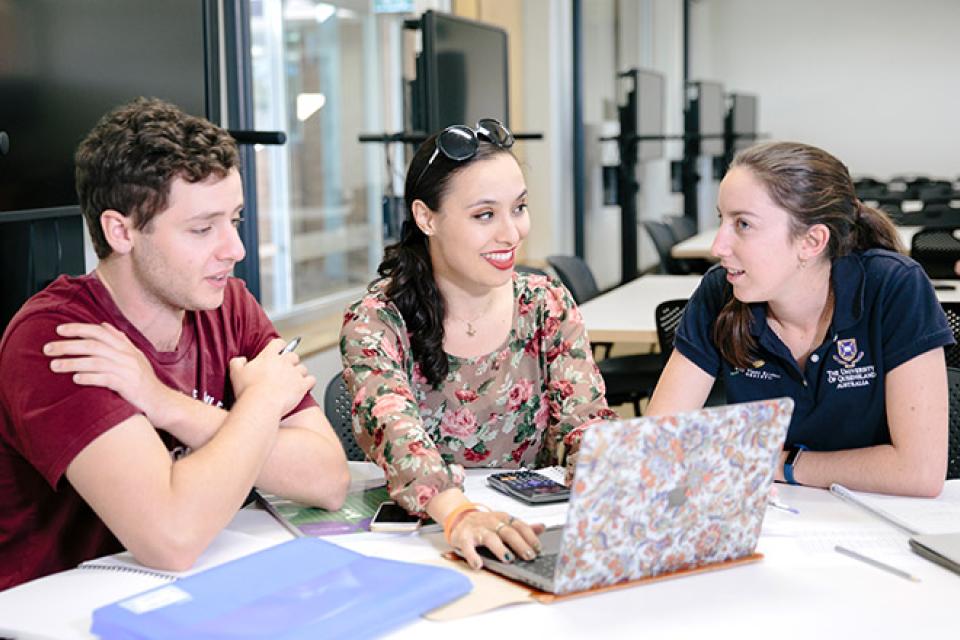
UQ’s facilities make it easy to study and socialise
Some of the benefits that come with studying veterinary science at UQ include:
- access to student engagement groups, including the UQ Veterinary Student Association, Veterinary Technology Student Association, and the Veterinary Science Postgraduate Association
- student discounts at UQ Gatton Fitness centre.
8. What is the quickest pathway to becoming a veterinarian?
To become a veterinarian, many universities require you to complete a 3-year undergraduate science program before you can start a 4-year postgraduate Doctor of Veterinary Medicine program – which means it will take 7 years before you graduate.
At UQ, you can become a fully qualified veterinary surgeon in just 5 years by completing our undergraduate Bachelor of Veterinary Science (Honours) program.
So, what are you waiting for? Start your journey towards your dream career as a veterinarian at UQ.

